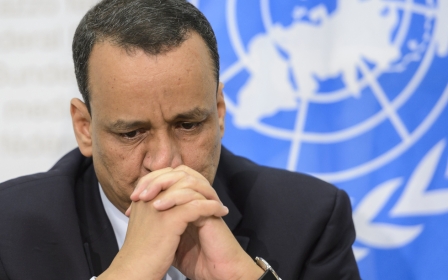Kuwait posts budget deficit after 16 years of surplus

Lower oil prices have pushed Kuwait into a rare budget deficit, ending 16 straight years of surpluses for the energy-rich Gulf state, the finance minister said.
The OPEC member recorded a budget shortfall of 4.6 billion dinars ($15.3 billion) in the fiscal year which ended on 31 March, Anas al-Saleh said in a statement carried by the KUNA news agency late on Monday.
It was the first shortfall since the fiscal year to March 1999.
Revenues dropped by 45 percent to $45.2 billion while spending was cut by 14.8 percent to $60.5 billion, the minister said.
Oil income was $40.1 billion, a slump of 46.3 percent from the previous year, he said.
Oil accounted for 89 percent of total revenues, down from 95 percent in previous years.
Saleh told parliament last month that Kuwait plans to tap international debt markets through bond issues to finance the deficit.
He said the emirate would borrow up to $10 billion in US-denominated bonds from international markets, in both conventional and (Islamic) sukuk issuance.
The ministry will borrow another $6.6 billion in both conventional and Islamic instruments from the domestic market, Saleh said.
In previous years, Kuwait built up a sovereign wealth fund worth around $600 billion that is invested mostly in the United States, Europe and Asia.
Kuwait is projecting a deficit of $28.9 billion in the current fiscal year which began on 1 April.
As part of efforts to reduce the shortfall, the cabinet last week decided to raise the price of petrol by up to 83 percent, the first increase in almost two decades.
Last year, it raised the prices of diesel and kerosene. It has also decided to lift electricity and water charges on foreign residents.
The ratings agency Moody's said late on Monday that the fuel price reforms will boost Kuwait's credit ratings because they will lower current expenditures and bolster government finances.
New MEE newsletter: Jerusalem Dispatch
Sign up to get the latest insights and analysis on Israel-Palestine, alongside Turkey Unpacked and other MEE newsletters
Middle East Eye delivers independent and unrivalled coverage and analysis of the Middle East, North Africa and beyond. To learn more about republishing this content and the associated fees, please fill out this form. More about MEE can be found here.




